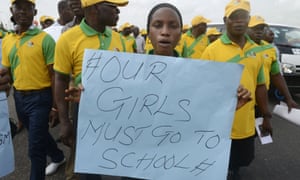#29 The #BringBackOurGirls of 2016: what will dominate Africa's Twittersphere this year?
Hashtags have become a key way to measure how millions of people react to the biggest news events and debates of the day. They’re also where some of the best jokes are made. Mapping this trend, satirical news site YesiYesighana and digital bloggersCircumspecte have just released their list of the most influential topics debated by Africans on Twitter (#AOT) in 2015. From #BringBackOurGirls which, on 6 December, marked 600 days since the schoolgirls of Chibok were abducted by Boko Haram, to #WhatWouldMagufuliDo, a tribute to the newly-elected Tanzanian president’s “revolutionary” commitment to cutting wasteful government spending, looking back at popular hashtags offers a useful overview on how the big events of the year played out online. “If African Twitter was a bar then the year 2015 would have been one of those memorable nights out,” YesiYesighana said. “Noisy drinkers would be eating jollof while debating xenophobia, everyday sexism and everything in between.
#30 Anti-Isis hackers claim responsibility for BBC cyber-attack
http://www.theguardian.com/media/2016/jan/02/bbc-cyber-attack-anti-isis-hackers-claim-responsibility
Lynam told BBC Breakfast that the technology correspondent, Rory Cellan-Jones, had received a tweet from a group calling itself New World Hacking (NWH), claiming responsibility for a distributed denial of service (DDoS). It bombarded the system with 600 gigabits a second of messages. The New Year’s Eve attack took down the iPlayer and other services for a few hours, according to Joe Lynam, the BBC’s business correspondent. Lynam said: “Their ultimate goal, believe it or not, is not to attack the BBC but to go for Isis, the group which often calls itself Islamic State, and all their servers so they cannot spread propaganda from various different websites.“What this group does is to take down various different websites it believes to be criminal and leading to terrorist acts. It posts the website which has been taken down with the hashtag ‘tangodown’ or ‘takendown’ deliberately by a distributed denial of service (DDoS), which is what hit the BBC two days ago.“We have to stress we have no evidence, but this group is claiming responsibility for this DDoS attack and they claim their ultimate goal is to take down Isis websites.”
- “The reason we really targeted [the] BBC is because we wanted to see our actual server power. It was only a test, we didn’t exactly plan to take it down for multiple hours.”

No comments:
Post a Comment